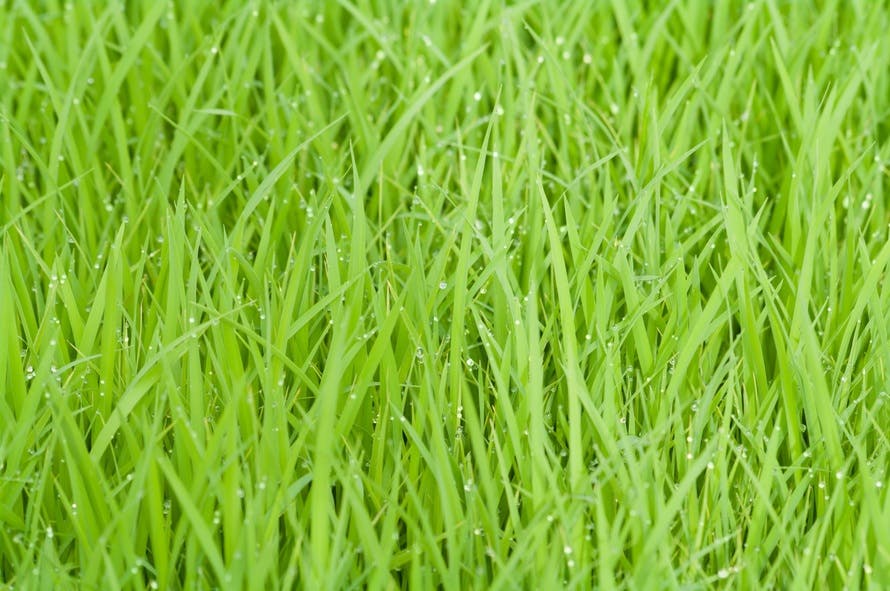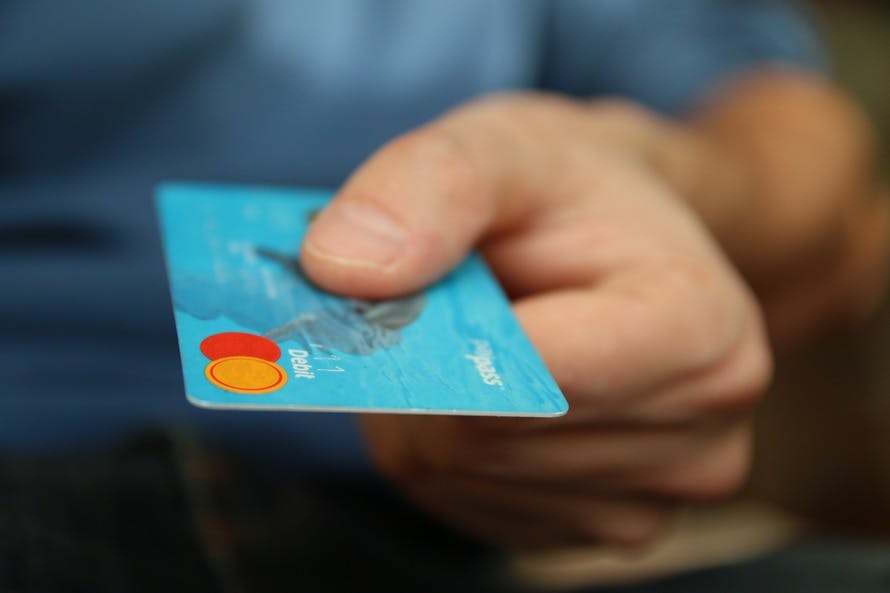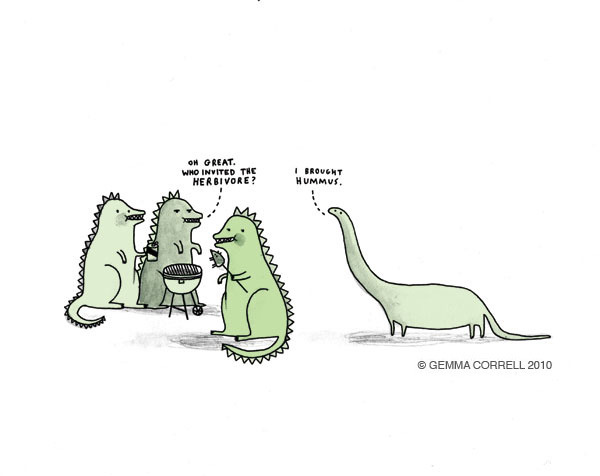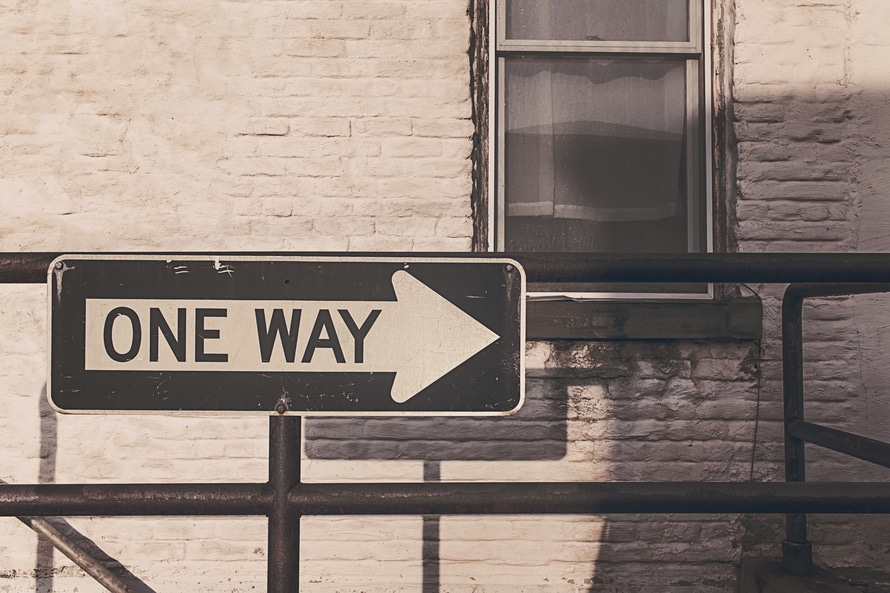“Wait, what!?”
You read that correctly. There are a number of reasons why you don’t want to go vegan, so let’s lay them out on the table.
You won’t have anything to eat.

“What do you even eat, grass?” You’ll get asked this question hundreds of times, or a question like it—just replace grass with rabbit food, lettuce, or something equally unappetizing. Animal products play a tremendous role in the standard American diet; such a large role that, by removing them, you’re left with very little familiar foods. Your plate will look barren, your pantry a wasteland…
Of course, that’s only if you don’t replace the products you just removed from your diet with new foods. Really, whose diet is more limiting if, when you remove meat from the plate, all that you can think of eating is salads and grass? A plant-based vegan diet is in fact very fulfilling. Here’s a list of some of the foods/cuisines I never had the pleasure of enjoying before going vegan, but now eat regularly:
Groundcherries, tomatillos, persimmons, dragon fruit, jackfruit, collard greens, bok choy, endive, pomegranate, beets, brussel sprouts, wakame, açaí berries, turnips, dates, figs, swiss chard, purple sweet potatoes, radishes, jamaican apples, papaya, passion fruit, nut-based cheeses, tempeh, coconut milk, coconut water, Thai staples, Eethiopian cuisine, Lebanese food, Moroccan specialties, Indian (okay, I had tried Indian food once before, but now it’s one of my favorites!), a variety of African spices…
A plant-based, vegan diet is not at all limiting. Quite the opposite: you might find that it exposes you to many wonderful foods you had never tried prior because you had fallen into an animal-centric rut.
Shopping will be more difficult . . .
. . . and expensive. Animal agribusiness benefits from government subsidies and other programs, which can sometimes make animal products more affordable (or sometimes force animal products, like milk, onto people that shop using benefits like WIC). And despite a rapidly changing culture and growing appreciation for plant-based foods, animal products are still much more abundantly available in markets and restaurants. Small, new start-up companies have not yet optimized their production to be able to reduce the cost of their products. Thus, if you’re trying to go vegan by replacing animal products with plant-based alternatives, you may end up hard-pressed to find such alternatives in your area, or find yourself paying the “vegan tax.”

However, this isn’t always the case. First, not all vegan alternatives are more costly. But more importantly, switching to a vegan, plant-based diet shouldn’t just involve substituting one food item for another; your transition should focus on reconstructing the entire plate. For instance, veggie burgers, faux-rizo, chick’un, and the like (although delicious) don’t have to be included in every meal in place of animal proteins. Instead, focus on adding whole food proteins to the menu—such as beans, quinoa, broccoli, and nuts. You may actually find that purchasing fresh, whole foods can be much more affordable than shopping for meat and processed foods.
Yea, but you’ll still have to change how you eat.

Let’s be honest, it’s hard enough remembering how to pronounce quinoa sometimes, let alone even think about making it. Eliminating meat and animal products from the diet leaves a gaping chasm behind that now must be filled with satiating and nutritious meals.
But you never learned how to cook satiating, nutritious meals without using animal products before, so you’re wandering around the supermarket trying to find out what aisle stocks the nutritional yeast and what the hell you’re supposed to do with this stuff (they call it “nooch”? Yea, that’s a thing) once you buy it. You don’t know what to eat, how to prepare it, or how to make it taste good.
I get that not everyone will enjoy the exploration and discovery of being a new vegan as much as I did (or do, because I’m always learning). It doesn’t matter how fun I may find it if trying new things causes you discomfort and anxiety. So, those slightly more expensive vegan alternatives I mentioned above might actually be helpful in making the transition much smoother. While you continue making some of your old favorites (e.g., tacos but with faux-rizo, or spaghetti but with vegan meatballs, or no meatballs at all), at the same time you can begin to explore and get familiar with simple cooking techniques for preparing vegetables or grains. Other techniques to ease the transition include taking vegan cooking classes with a group of friends. Or, you might decide to ease into veganism, one food item at a time. No one ever said you had to go vegan overnight.
The point is that settling in to your new diet won’t last forever, and soon enough you’ll be amazed at how far you’ve come.
You like the taste of meat.
You know what you like. You’ve been eating it for years. If you didn’t like the taste of meat, you would have stopped eating it decades ago. And the vegan alternatives just don’t taste the same.
Vegan meat doesn’t taste exactly like animal products, no. But it still tastes good—actually, it tastes great. And as I like to say,
“Nothing tastes as good as vegan feels.”
My husband laughs at me for that. In fact, he says that until vegan food precisely mimics the flavor and texture of animal meat, he won’t go vegan. But that’s not the point. And while some unbelievably innovative companies have set out on a mission to replicate the flavor of meat, that’s an unrealistic expectation to have when switching to a vegan lifestyle. Going vegan means that you’re no longer consuming meat. Thus, your food will inevitably taste different. But that’s not a bad thing.
Remember, your palette changes based on what you eat. The more of something that you consume, the more your body will crave it and enjoy the flavor of that food. So you have to first break your addiction to meat and animal products—and if you’ll recall from an earlier post, cheese is literally addictive. Plus, if you’re worried about making your vegan food taste good, just remember: the reason most people like the taste of animal products is because they season that food with vegetables and herbs. They literally use plants to make their meat taste good.
You’re just one person; how could you make a difference?
You are one person on a planet of over 7 billion people. How could you ever have an impact? You don’t have time to be an animal activist. And how will your voice—your lifestyle—change the planet for the better? You’re one person . . . out of 7 billion . . . really?
But in the United States alone, 16 million people are vegan, according to a 2014 article [1]. That’s 5 % of the population. And just a few years ago, that number was as low as 1%! So even if maybe there’s a chance that you, specifically, won’t have a tremendous impact, does that mean you shouldn’t even try?? And think about the collective impact of you + 16 million people might have!
You don’t need to be some incredibly vocal animal activist to have an influence on those around you. You’re already making a difference every day through the choices you make. You have incredible influence! Truly. The people around you notice your behavior, and they might even change their habits based on how they see you act and react. And if you’ll recall from economics class, less supply means less demand, which in turn will lead to lower production. So,
“Be the change you wish to see in the world.” -Mahatma Gandhi
As a reminder for me, I keep this image as the background on my phone; lest I forget that I make a difference with every meal, every day.

Original source: unknown. Found circulated on Instagram, Pinterest, etc.
Being the vegan in the room is alienating.
Imagine this: you show up to a party, you bring the hummus and veggies. Fortunately, hummus has become oddly popular in recent years, so people aren’t all that disappointed. As you start to mingle, you find people eating food you don’t eat, talking about meals you don’t make, and planning a trip to the latest hipster restaurant where everything is cooked in duck fat. (Gross.) They don’t even ask you to go, because you’re a vegan (but it’s not like you want to go anyway). You slowly sink into the shadows of the room, unable to contribute to the conversation and feeling like an outcast. Some people may even crack fun at you for being a vegan. Ouch.

Being the “vegan in the room” can either bring you a lot of attention (although, perhaps unwanted), or set you off as an outcast. Sure, it can be uncomfortable from time to time. If you don’t plan ahead, you might find out that no one considered a vegan option when preparing the menu. And at first, the comments and reactions from some of your friends (!!) might even shock you. But you should stand tall in your veganism—you are unique; not only that, you are living in accordance with your morals. You might be “that weird vegan” for the first few months, but you might also find that your friends and family become interested in your veganism over time. They’ll think about you when making dinner plans, and they’ll create some wonderful memories with you sharing the massive vegan cinnamon roll at Sunday brunch!

The Decadent Cinnamon Roll at Great Sage, Clarkesville
Your culture and traditions revolve around meals with animal products.
Remember that scenario we imagined a moment ago? The one where you were a total loner at the party. Let’s think about that one again; except now it’s a family holiday. And that holiday practically revolves around food—food that you wouldn’t be able to eat as a vegan: roasted turkey, mayo-drenched potato salad, that (otherwise-delicious) dessert that your grandfather makes using an entire stick of butter. It used to be your favorite holiday—because of the food. But now, you feel depressed because you can’t partake, and your family doesn’t understand. In fact, they might even make you feel guilty because you’ve now ruined the holiday for them because you’re not eating the food.
But when did we forget the true meaning of these holidays? And while food might play a major role in our celebrations, in our cultures, why not create new family traditions centered around compassionate food choices? For recipes that can’t be ‘veganized,’ replace them with new, family-crafted vegan recipes. Creating these recipes and traditions together makes them so much more meaningful.
You travel and it would be too hard on the road.
So you travel often; usually to places you’ve never before visited—sometimes to places where you don’t even speak the language. If it’s a business trip, most of your visit is spent working on a project, and most of your meals will probably be shared with your co-workers or client. Traveling to an unfamiliar place is a little bit of excitement mixed with a little bit of anxiety. That’s certainly even more true when you’re vegan. You’re excited about all the cool vegan gems you’ll find throughout the area, but nervous that it won’t be easy to find vegan food when you’re on the run. What if you can’t read the menu, and don’t know how to convey to your waiter or host that you don’t eat anything from animals? What if they bring out dog meat? Being a vegan on the road requires a lot of pre-planning, creating a food translation list, researching vegan-friendly locations, and even packing your own food.
But let me tell you why being a traveling vegan is an incredibly fulfilling experience. The research can be a bit annoying, but you’re planning your trip anyway, and you’d be planning meals anyway, so why not try to see some of the world’s most renowned and celebrated vegan restaurants if you have the chance!? So you pack your bags (and throw in some vegan snacks), and head off. A few years ago, airports had very limited vegan options. That’s not the case today. Still, pack a few snacks for the trip, just in case you’re short on time or get hungry during a delayed take-off. If you’re on a long flight, you have to request a special meal. And that’s actually a really good thing. In all my experiences, whenever I have to request a special vegan meal (at conventions or on flights, etc.), my food is not only served first, but it’s also so much more delicious than the food everyone else is receiving. That’s partly because it was prepared just for me (compared to being prepared en masse for the rest of the group), but also because the special vegan meal is usually crafted using fresh ingredients. The folks around me always, ALWAYS remark, “had I known that were an option, I would have requested it.” Finally, as long as you know a few key phrases—”no meat,” “no dairy/milk/butter/egg,” or “no animal products” to name a few—you should be able to navigate just fine.
You’ll be deficient in your vitamins and minerals.
Serious migraines have taken hold of you. You’re anemic, and weak; you’ve got dark circles under your eyes and your hair is falling out. Everything that you imagined going wrong…went wrong.
Well, let’s get this one straight. Unlike all the other scenarios I’ve painted above, this has never happened to me. Nothing even close to this has ever happened to me. But that’s not to say that it cannot happen. The important thing to remember, however, is that vegans are not the only ones at risk of vitamin deficiency. To be clear, protein and calcium are total non-issues for most vegans. We’re doing just fine without those. In fact, we can get protein and calcium, in addition to magnesium, iron, Omega-3, etc. from plant-based sources sometimes better than we could get them from animal sources. So really, if you’re worried about getting your nutrients on a plant-based diet, you should also be worried about getting them on an animal-based diet.
Now, it’s important to note that, when first transitioning to a plant-based, vegan diet, you may start to feel a bit funky. Your body is quite literally detoxing itself from the foods you’ve been consuming for so long. Don’t worry, this is another very good thing. You’ve just got on the Destination: Happy and Healthy train.
You already buy organic, grass-fed, humane meat from happy animals.
You’re already a really conscious consumer. That’s awesome! You shop local, subscribe to a CSA (Community-Supported Agriculture) share, and you buy foods that are sustainably harvested. You also spend the premium for “humane” meat—from organic, grass-fed cows. You’ve already cleared your conscience of that little meat issue. Why change? You’re not doing anything wrong, right?
Think again. I would be remiss if I didn’t point out that no, you do not eat ‘humane’ meat. That doesn’t exist! Let’s clear up this little misunderstanding: no animal is happy to be slaughtered or exploited for their bodily functions. But here’s the thing, you’re already a very conscious consumer. You’re already trying to figure out how to reduce your impact and make a difference. You’re almost there! If you’re trying to reduce your ecological footprint—the adverse impact your life has on the planet—you’ll most certainly want to go vegan. Animal agriculture is the most destructive industry facing the planet today. And a diet that includes meat is preventing us from being the compassionate beings we strive to be.
Veganism is privileged.
You are a true social justice warrior. You strive to achieve equality in the world. So being vegan is not even on your radar because, hey, there are starving children somewhere. In your own backyard, even, there’s a food desert; people in your city don’t have access to fresh produce, let alone vegan convenience foods. Being a vegan would mean that you’re benefiting from your privilege. Not only do you have other causes you’re fighting for, but you also don’t want to come across as a classist, privileged vegan.
But actually, for those starving children, meat is a privilege. In fact, having a choice at all regarding what you will and will not eat means that you are privileged because you have those options. And the fact that you have the privilege to choose what to eat is exactly why you should choose to eat vegan. You have the option (privilege) to live compassionately. You have the option (privilege) to reduce your impact on the planet. You have the option (privilege) to feed the world. When we own our privilege, we open the door to using our privilege for good.
In closing…
There are a number of reasons why you don’t want to go vegan. I know because I, too, said them at one point. And I’ve heard every excuse in the book since going vegan. Really, that’s all they are. They’re just excuses…
That’s not to say they’re not valid excuses—some of these are very important to each of us; thus, they’re very real barriers. Alas, barriers can be broken and overcome. Your barriers can be overcome. You have the ability to make the decisions that will give you the happy, healthy, compassionate life you’ve always wanted.
Resources:
[1] http://www.onegreenplanet.org/news/is-2014-the-year-of-the-vegan/
http://theminimalistvegan.com/excuses/




Great read! (:
This is a great post! Even though I can’t be vegan due to health issues, I’ve completely cut out all meat besides environmentally sustainable fish. Some people I know have been telling me how I’ll go back to meat because they think my diet is somehow inferior. Your post really broke apart some stereotypes towards vegans. Thank you for writing this!